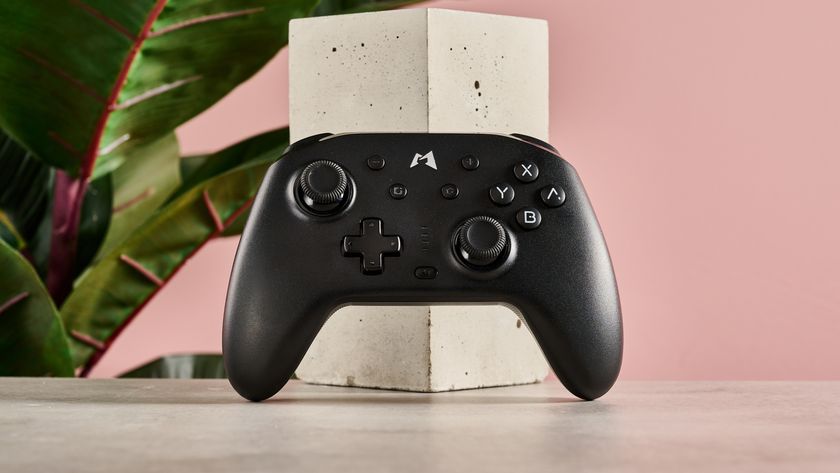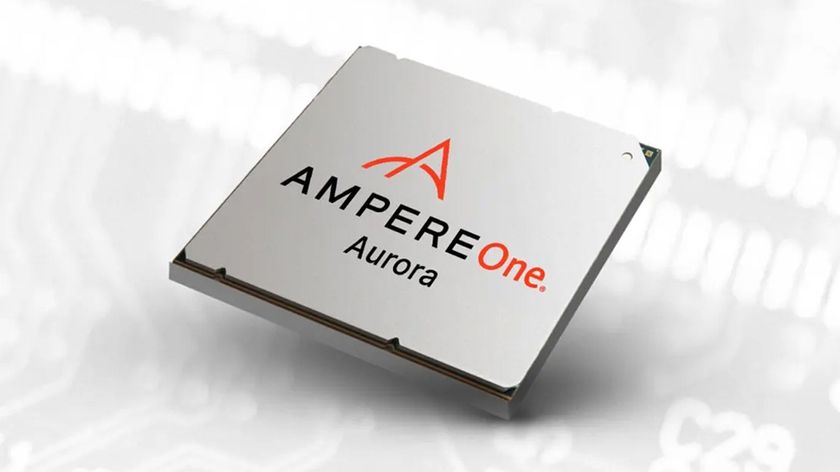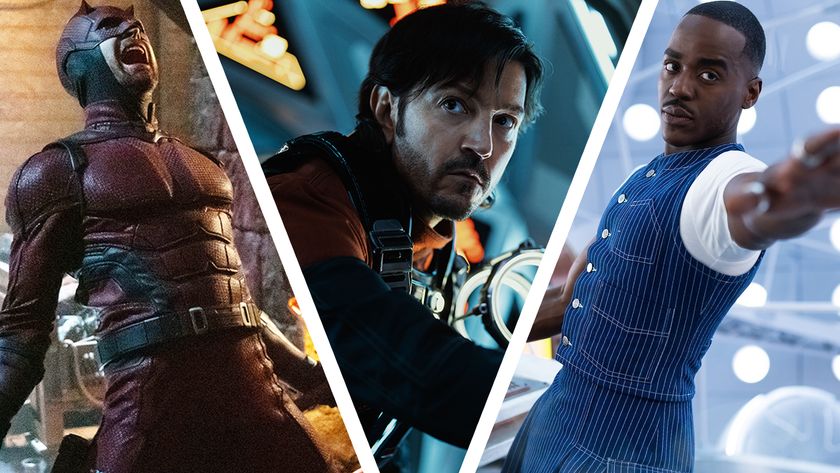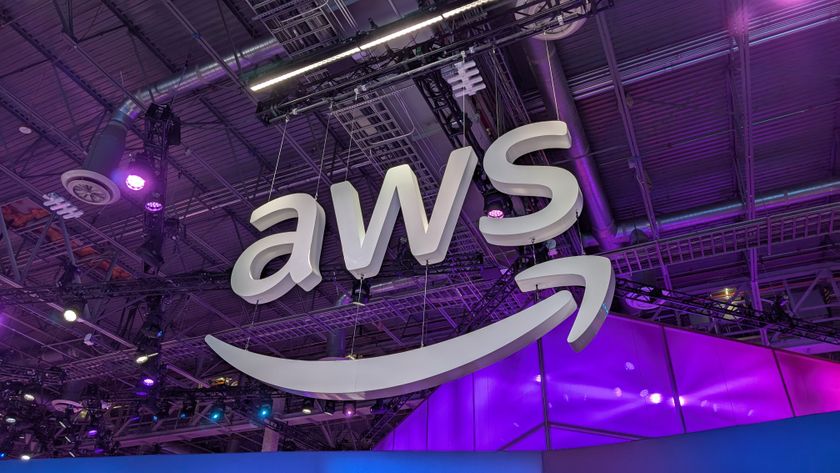3D gaming: everything you need to know
Why Gran Turismo 5 is 3D gaming's 'Avatar'
Oliver is the first to admit that while he and his teams of programmers ("frankly, quite a lot of geeks") have been playing around with different 3D monitors and technologies in the office for ages, the 'eureka' moment for him was seeing Polar Express on IMAX 3D.
For him, it was both the first full-length 3D film that was "really classy" and contained "some real wow moments" and which, in turn, "was when we started looking into the possibilities of 3D gaming in the home."
After developing various interactive 3D demos to show TV manufacturers and media giants at events such as CES and SIGGRAPH, Blitz finally arrived at a fully-realised 3D stereoscopic console game in Invincible Tiger which was more of a 'proof-of-concept' project as opposed to a commercial game made to turn a profit.
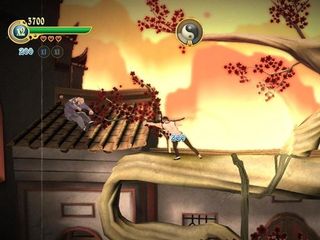
INVINCIBLE TIGER: Blitz's 3D game was a world first
"When we made Invincible Tiger we were proving that we could make a full 3D game, but at the same time we were having to try to ensure that it was compatible with all the different 3D formats that each manufacturer had at the time for their TVs – was an absolute pain!" he remembers, adding that he is much happier now that the new HDMI 1.4 format is standardising the playing field for 3D console gaming in 2010.
Following its CES announcements and demos, it is clear that Sony is putting its considerable weight behind 3D gaming, while Microsoft seems pretty happy to sit on the fence, directing its resources and PR clout towards Project Natal and motion control instead. And as for Nintendo, 3D is just not on its radar.
Oliver is quick to remind us that, in addition to the PlayStation 3, Sony also makes 3D movies, 3D projectors, 3D film cameras, 3D Blu-rays and 3D Bravia TVs. To ask why the company is seriously betting the farm on 3D is like asking why Microsoft is so obsessed with operating systems on PCs. It is not a new growth area of the business for Sony. It is right at the CORE of their business.
Get daily insight, inspiration and deals in your inbox
Sign up for breaking news, reviews, opinion, top tech deals, and more.
"Sony has always been at that cutting edge and can clearly see that the consumer wants 3D. Avatar has just cemented that, but they were committed to it long before that movie's success," says Oliver, who was lucky enough to spend a good amount of time playing Sony's 3D game demos at CES.
"SCE was showing a raft of 3D PS3 games at CES – including playable versions of WipEout, Gran Turismo 5 and Super Stardust 3D and 'coming soon' 3D videos showing Motorstorm, LittleBigPlanet and Major League Baseball. And they all looked really nice."
"Sony will soon be spreading the message to developers to get on board too. Yet we still have that catch-22 situation, where developers will say "it takes a bit more effort and a bit more cost to make a game with a 3D mode" – at Blitz we estimate around 10 to 15 per cent added to the budget – when as yet nobody owns a HDMI 1.4 3D-ready TV."
Thankfully, for gamers, it it looks like more publishers are starting to see that faintly glowing 'return-on-investment light' at the end of the tunnel.
"As a businessman, I understand that practical, bottom-line focus," says Oliver, who is happy that a couple more publishers are now willing to start to take that risk, "because they know that reviewers will be wowed by it."
"And of course these new TVs will be on sale from March onwards and Blu-ray 3Ds will start to appear through the late spring and early summer. Sky will launch its own 3D programming in April. And Sony Centres and game stores will soon have full 3D gaming demo set-ups, which is vital, because you really have got to see it to believe it. I've seen Gran Turismo 5 running in 3D and it is stunning. It is a major step forward. It is gaming's Avatar."
Nvidia's 3D gameplan
So it is clear that having that full endorsement of the latest active-shutter 3D TV and glasses technology from Sony Computer Entertainment – in addition to those other major new 3D-in-the-home services such as Sky 3D later this spring - is really going to boost the demand and desire for the tech amongst general consumers.
But going back to the here and now of 3D gaming on PC, what is Nvidia and its game development and hardware partners planning for 3D gaming in 2010?
The company has been supporting 3D PC gaming for quite a while now with its 3D Vision tech – which is basically a kit comprising of a pair of active shutter glasses, an IR-emitter and all of the necessary drivers and software to turn your games into a full 3D experience (providing you have a new 120Hz monitor, that is).
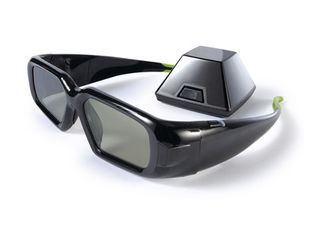
NVIDIA 3D KIT: The current PC standard
"We have been there with 3D and leading the way since it effectively came back from the dead," says Nvidia's Senior Corporate Communications Manager for the EMEAI region, Bea Longworth. "3D has had numerous resurgences since the 1950s, but right up until this recent CES it has always still been dogged with that air of the 'shock-horror, cheap paper glasses, skeletons falling from the ceiling' gimmick.
"So up until now, many people thought it was a bit of fun, but never something that was going to become a core technology for entertainment devices. But add that Sony-endorsement of 3D for the PlayStation 3 and Blu-ray to the fact that all of the major TV manufacturers have now come out with 3D-capable panels, the news that Sky is soon releasing 3D TV content and the massive runaway success of Avatar in cinemas… it is clearly something that is here to stay and something that has a massive amount of momentum at the moment and something that Nvidia is proud to have been part of starting up in the gaming arena, which is our particular forte."
As for 3D Blu-ray tech, Nvidia has also been and working very closely with its various software and hardware partners to try to make sure they can deliver the best 3D movie experience in the home.
"It is a surprisingly good experience," says Longworth of 3D Blu-ray. "Many critics claim that nobody will want to wear glasses to view TV in the home, but I think the quality of this experience will change those people's minds. Obviously, there are some game developers that we are working with – as part of our 'The Way Its Meant To Be Played' program – who are implementing 3D into games in ways that are integral to the gameplay, so the 3D is a key part of the gamer's experience. Rather than a pretty bolt-on."
Current page: Gran Turismo 5 is 3D gaming's 'Avatar'
Prev Page Motion plus full 3D: a shotgun marriage? Next Page 3D Alienware attack

